What is Ketamine?
Ketamine is a psychoactive drug classified as a dissociative anesthetic that has been available by prescription in the United States since the 1970s. The World Health Organization considers Ketamine as an Essential Medicine. Ketamine is a Schedule III medication currently being used “off-label” in sub-anesthetic doses and has a long history of use with a high safety profile.
Dissociative medicines can lead to distortion of sights, colors, sounds, self, and one’s environment, including a disconnection from our usual way of feeling. When combined with psychotherapy, perceptual shifts may occur leading to accelerated growth and healing.
Ketamine use may result in shifts in consciousness, expanded states of awareness, and seeing outside the “normal” mind states that can help to reduce anxiety, depression, and our “normal” life stressors and concerns. Ketamine is usually given at low doses in combination with psychotherapy to allow reflection, and help to facilitate growth and noticeable changes.
What is Ketamine Assisted Psychotherapy?
KAP differs from traditional psychotherapy as ketamine is administered during a psychotherapy session, and may last approximately 2-3 hours. When combined with psychotherapy, perceptual shifts may occur leading to accelerated growth and healing. Ketamine use may result in shifts in consciousness, expanded states of awareness, and seeing outside out “normal” mind states that can help to reduce anxiety, depression, and our “normal” life stressors and concerns. Ketamine is usually given at low doses in combination with psychotherapy to allow reflection, and help to facilitate growth and noticeable changes.
At times, Ketamine may result in a psychedelic, and/or a mystical or spiritual experience. This may be similar to results being seen during current research studies involving MDMA, and Psilocybin. Ketamine is currently the only medicine legally available in the U.S. that may produce a psychedelic effect, and can be combined with psychotherapy.
Current Mental Health conditions that may see a benefit from KAP include:
PTSD, Trauma (childhood and adult), Depression and Anxiety, Grief & complicated Grief, Anxiety or Existential Crisis related to End of Life or Terminal Illness.
What should I expect when starting ketamine treatment?
The KAP journey usually starts with a comprehensive diagnostic intake. This allows us to get a thorough medical and psychiatric history. The next step is to build trust, establish a therapeutic relationship and identify individualized treatment goals, hopes, desires and struggles to allow you to gain the most from your experience. The actual administration of ketamine during a psychotherapy session usually last from 2 to 3 hours in length. The time may vary depending on the route of administration, i.e. sublingual/oral vs intramuscular (IM), and the dose. Time is also allotted to allow for full recovery, and processing. Some clients feel the need to have a single session, but we do suggest a treatment course that may be biweekly over several weeks based on individual needs and treatment goals. Post Integration sessions following the administration of ketamine, include individualized psychotherapy that is focused on helping apply the insights gained to help provide lasting changes. This is also critical in helping to process unresolved or underlying trauma that may have surfaced during the ketamine session.
How does ketamine work?
Ketamine utilizes and works on multiple pathways in the brain that may promote healing. One of the main pathways for Ketamine is focused on the NDMA receptor site in the brain. The current understanding of ketamine’s mechanism of action is as an NMDA antagonist working through the glutamate neurotransmitter system. Increased Glutamate may enhance mood, decrease anxiety, and decrease cravings associated with addiction. This is a very different pathway than that of other psychiatric drugs such as the SSRls, SNRIS, lamotrigine, anti-psychotics, benzodiazepines, etc.
Additionally, ketamine is associated with Neurogenesis, which is the growth of new brain connections. The new neural connections that can result from using ketamine allow shifts in consciousness and healing to occur. Ketamine has also been shown to help decrease inflammatory responses, both in the body and brain.
What are some common or expected side effects associated with ketamine?
Side effects associated with ketamine may occur directly after the administration or following session, and usually resolve quickly. This may include: mild nausea, dizziness, derealization, and drowsiness. We are prepared to help ease any side effect during the session to allow you to gain the most from your ketamine experience.
Is ketamine covered by my health insurance?
KAP is considered “off Label” use for mental health conditions according to the FDA. The actual administration of ketamine with psychotherapy is NOT covered by insurance and would be cash pay. The diagnostic intake and integration sessions can be billed through your health insurance.
Please feel free to ask if you have any additional questions, and you can contact our billing department at 520-722-1667 to inquire if we currently accept your insurance plan.
Are there alternative treatments to Ketamine?
Major Depression (MDD), PTSD, and Bipolar Disorders are usually treated with antidepressant medications, tranquilizers, mood stabilizers and/or psychotherapy. Other treatment modalities are electroconvulsive therapy (ECT) and Transcranial Magnetic Stimulation (TMS) usually reserved for treatment-resistant-depression.


